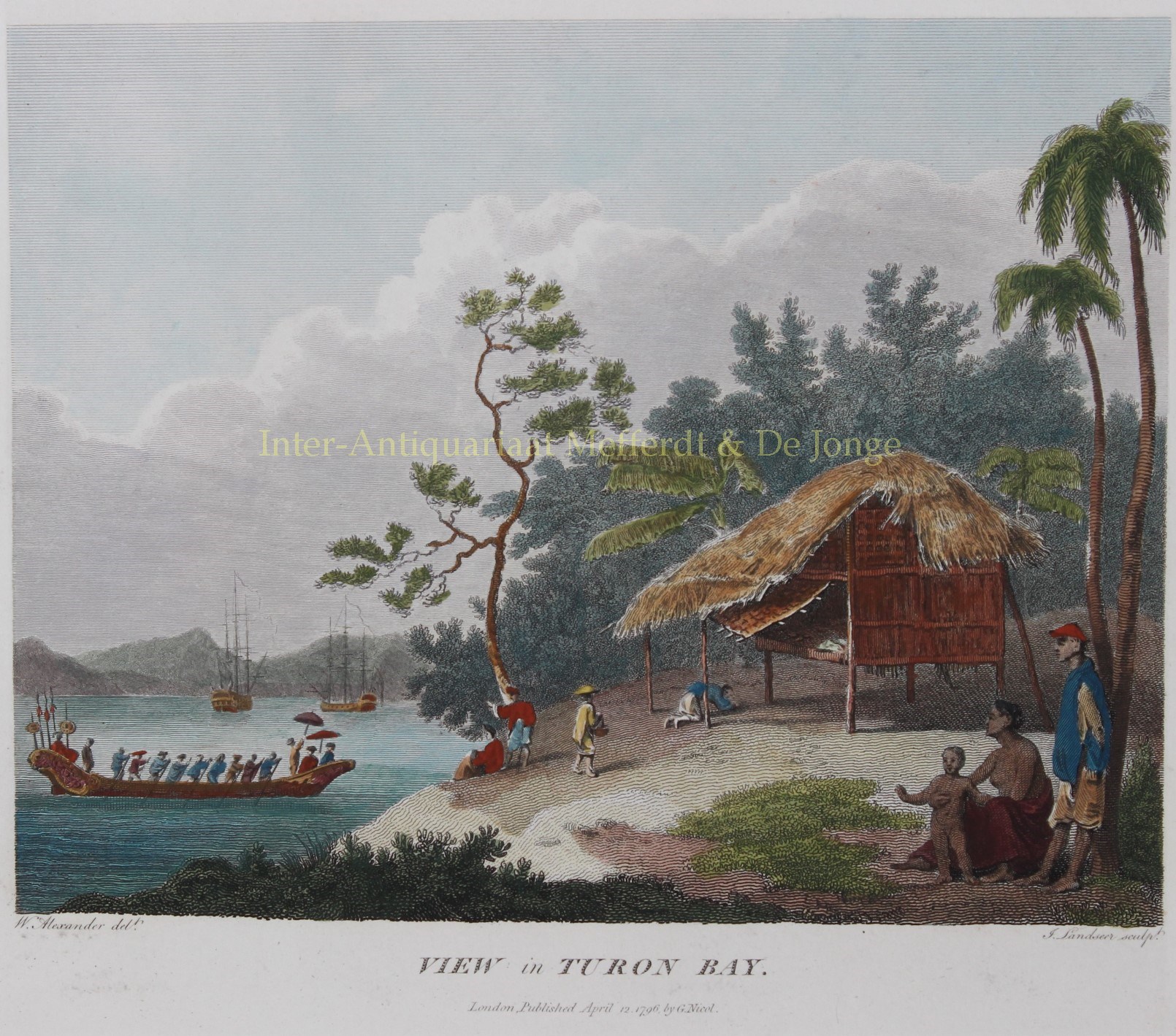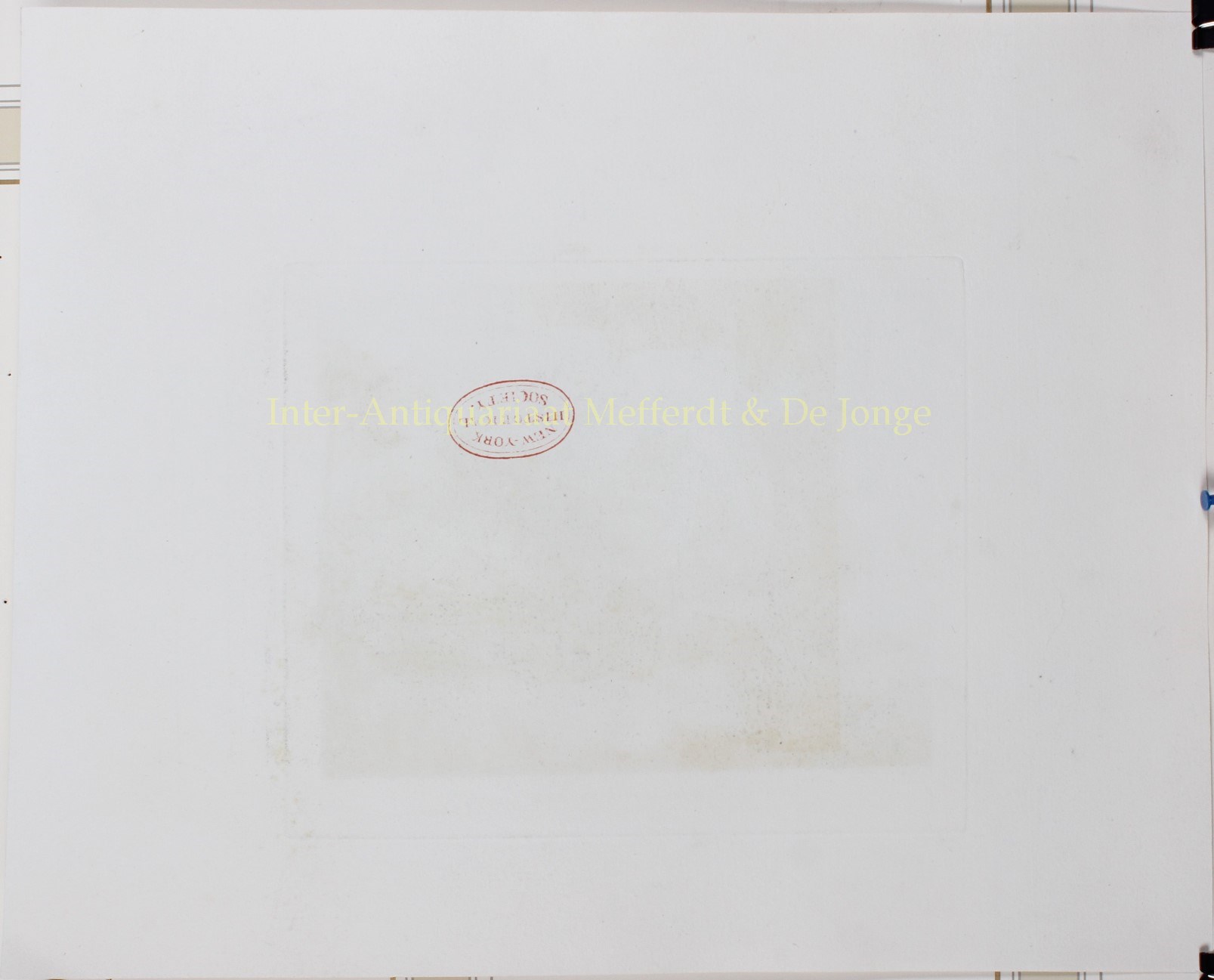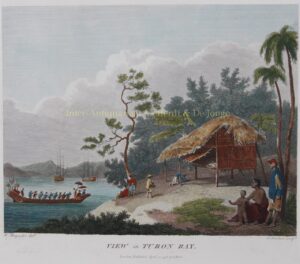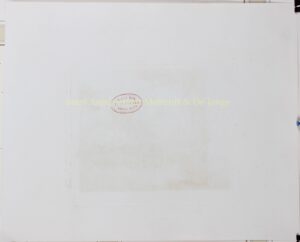“View in Turon Bay” [present day Da Nang, Đà Nẵng]. Copper engraving by John Landseer after a drawing by William Alexander (1767-1816 ) from the “Authentic account of an embassy from the King of Great Britain to the Emperor of China; including cursory observations made, and information obtained, in travelling through that ancient empire” written by Sir George Leonard Staunton and published April 12, 1796 in London by G. Nicol. Coloured by a later hand. Size (image): 17,3 x 22,4 cm.
The embassy was headed by Earl George Macartney (1737-1806), who was dispatched to Beijing in 1792. He was accompanied by Staunton a medical doctor as his secretary, and a retinue of suitably impressive size, including Staunton’s 11-year-old son who was nominally the ambassador’s page. On the embassy’s arrival in China it emerged that the 11-year-old was the only European member of the embassy able to speak Mandarin, and thus the only one able to converse with the Emperor.
Lord Macartney’s embassy was unsuccessful, the Chinese resisting British overtures to establish diplomatic relations in view of opening the vast Chinese realms to free trade, but it opened the way for future British missions, which would eventually lead to the first Opium War and the cession of Hong Kong to Britain in 1842. It also resulted in this invaluable account, prepared at government expense, largely from Lord Macartney’s notes, by Staunton, of Chinese manners, customs and artifacts at the height of the Qing dynasty.
The engravings are of special interest because of their depiction of subjects that very few Europeans had heard of or seen, showing how advanced Chinese civilisation was on a technical, artistic and organizational level.
Upon his arrival in the kingdom of Cochinchina in 1793, Lord Macartney wrote to the president of the India Board:”Turon Bay is safe in all seasons of the the year; sufficiently capacious to hold the largest fleets, affording a complete shelter against both monsoons, with an islet surrounding by a sufficient depth of water to admit ships of considerable size heaving down by it; and, on the whole, navy gentlemen here consider this port to be the most commodious of any on this side of Asia. The island of Campelo (or Callao), is within a few miles (eight) to the southward of Turon. It is asserted that the French had, several years ago, proposed to purchase it from the King of Cochin China. The supposed that the quantity of gold extracted from the Cochin Chinese mountains, and the vast quantity of sugar manufactured in its plains and sold at a price vastly lower than in any other part of the world, together with the other produce of that country, would render the settlement in the neighbourhood very profitable; but above all, they conceived that by stationing frigates there, on the approach of war, the might easily intercept our ships bound for, or returning from, Canton.”
Price: Euro 195,-





